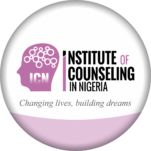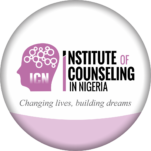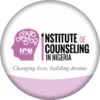One in four Nigerians – some 50 million people – are suffering from some sort of mental illness, according to the World Health Organization (WHO). There are only eight neuropsychiatric hospitals in Nigeria. With dire budget and staffing shortfalls prompting doctors to go on strike, leave the country, or quit the medical profession altogether. The seventh-largest country in the world, Nigeria has Africa’s highest rate of depression, and ranks fifth in the world in the frequency of suicide, according to WHO. There are less than 150 psychiatrists in this country of 200 million, and WHO estimates that fewer than 10 percent of mentally ill Nigerians have access to the care they need.
The stark difference between Nigeria’s need for better psychiatric care – and the resources available – is illustrated by the healthcare gaps at Yaba psychiatric hospital, which had a 2018 budget of 133 million naira ($372,000) – but only 13 million naira ($36,000) or less than 10 percent of that amount released by the federal government. The Federal Neuro-Psychiatric Hospital Yaba is facing a 22 percent increase in the number of new patients with different types of mental illnesses – while only 10 percent of its allocated budget has been released by the federal government.
Roughly nine out of every ten doctors in Nigeria are seeking to leave the country and find work elsewhere, according to a 2017 poll by the nonprofit organisation Nigeria Health Watch. The desire for better opportunities – improved pay, facilities, work environments, professional satisfaction, tax breaks and career progression – were among the reasons that psychiatrists and other doctors surveyed said they were hoping to emigrate. Every week, reports the General Medical Council of the United Kingdom, at least 12 doctors leave Nigeria to seek employment in the UK, where they can earn twice as much as they do at home – and where the number of practicing doctors from Nigeria has more than doubled in the past 13 years.
In part due to the migration of doctors to other countries, Nigeria has an estimated physician-patient ratio of one doctor to every 4,000 to 5,000 patients – six times smaller than the physician-patient ratio (one physician to every 600 patients) that is recommended by WHO. Nigeria Health Watch projects that with Nigeria’s population on the rise (it is slated to double by 2050, according to the United Nations), the country will need to stop losing doctors and instead start bringing more in – at a rate of 10,605 per year – to keep pace with overall patient demand.
Along with 20 other member nations of the African Union, Nigeria signed the 2001 Abuja Declaration that promised to earmark 15 percent of its federal budgets for healthcare. A 2011 WHO report found Nigeria had made “insufficient progress” towards that target. And by 2018, the country had allocated just 3.95 percent of its budget to funding its Ministry of Health. In Nigeria’s recently proposed 2020 budget, President Muhammadu Buhari allocated just 4.3 percent of the total budget for health. © 2019 Al Jazeera Media Network
What is the place of Counseling here? Counselors are mental health professionals who help in resolving individuals emotional conflicts, real life and mental health issues, that could lead to in-congruence and chronic mental illnesses. Professional Counselors help their clients/patients to deal with these issues through talk therapy. Goals of therapy are achieved using theories, skills and techniques that will lead to long term behavioral change and mental stability. In order words, if Nigerian can embrace Counseling, most of the unresolved issues resulting to chronic mental illnesses could be dealt with at the early stage. As long as no one is undermining the need for medications, behavioral and emotional issues are better treated with counseling/therapy before they get out of hands.



